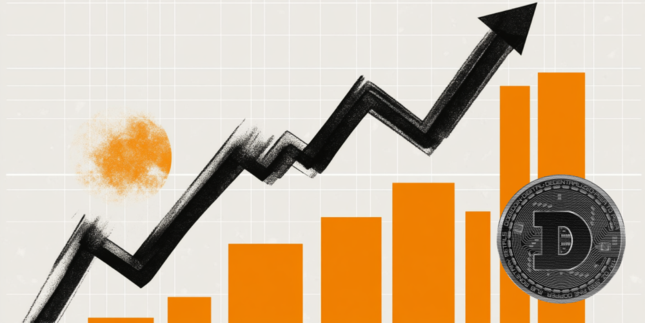- USD/CAD inches lower due to rise in crude Oil prices.
- The WTI price gains ground due to supply concerns in the Middle East.
- The US Dollar holds its position ahead of the US PCE Price Index.
USD/CAD snaps its two-day winning streak, trading around 1.3480 during the European session on Friday. The downside of the USD/CAD pair could be attributed to the commodity-linked Canadian Dollar (CAD), which receives support from higher crude Oil prices. Given the fact that Canada is the largest Oil exporter to the United States (US).
The West Texas Intermediate (WTI) Oil price continues to rise, trading around $75.70 per barrel at the time of writing. This increase is driven by supply concerns in the Middle East. Worries about reduced Libyan Oil supplies and Iraq's plans to curb production are contributing to these supply fears, which in turn are bolstering Oil prices.
The downside for the USD/CAD pair may be limited, as the US Dollar continues to hold its recent gains after stronger-than-expected economic data released on Thursday. However, dovish comments from the Federal Reserve could restrain further upward movement for the Greenback.
Federal Reserve Atlanta President Raphael Bostic, a prominent hawk on the FOMC, indicated on Thursday that it might be "time to move" on rate cuts due to further cooling inflation and a higher-than-expected unemployment rate. However, he wants to wait for confirmation from the upcoming monthly jobs report and two inflation reports before the Fed's September meeting.
Investors await July’s US Personal Consumption Expenditure (PCE) Price Index scheduled to be released later in the North American Session, seeking clues about the future direction of US interest rates.
Canadian Dollar FAQs
The key factors driving the Canadian Dollar (CAD) are the level of interest rates set by the Bank of Canada (BoC), the price of Oil, Canada’s largest export, the health of its economy, inflation and the Trade Balance, which is the difference between the value of Canada’s exports versus its imports. Other factors include market sentiment – whether investors are taking on more risky assets (risk-on) or seeking safe-havens (risk-off) – with risk-on being CAD-positive. As its largest trading partner, the health of the US economy is also a key factor influencing the Canadian Dollar.
The Bank of Canada (BoC) has a significant influence on the Canadian Dollar by setting the level of interest rates that banks can lend to one another. This influences the level of interest rates for everyone. The main goal of the BoC is to maintain inflation at 1-3% by adjusting interest rates up or down. Relatively higher interest rates tend to be positive for the CAD. The Bank of Canada can also use quantitative easing and tightening to influence credit conditions, with the former CAD-negative and the latter CAD-positive.
The price of Oil is a key factor impacting the value of the Canadian Dollar. Petroleum is Canada’s biggest export, so Oil price tends to have an immediate impact on the CAD value. Generally, if Oil price rises CAD also goes up, as aggregate demand for the currency increases. The opposite is the case if the price of Oil falls. Higher Oil prices also tend to result in a greater likelihood of a positive Trade Balance, which is also supportive of the CAD.
While inflation had always traditionally been thought of as a negative factor for a currency since it lowers the value of money, the opposite has actually been the case in modern times with the relaxation of cross-border capital controls. Higher inflation tends to lead central banks to put up interest rates which attracts more capital inflows from global investors seeking a lucrative place to keep their money. This increases demand for the local currency, which in Canada’s case is the Canadian Dollar.
Macroeconomic data releases gauge the health of the economy and can have an impact on the Canadian Dollar. Indicators such as GDP, Manufacturing and Services PMIs, employment, and consumer sentiment surveys can all influence the direction of the CAD. A strong economy is good for the Canadian Dollar. Not only does it attract more foreign investment but it may encourage the Bank of Canada to put up interest rates, leading to a stronger currency. If economic data is weak, however, the CAD is likely to fall.
Information on these pages contains forward-looking statements that involve risks and uncertainties. Markets and instruments profiled on this page are for informational purposes only and should not in any way come across as a recommendation to buy or sell in these assets. You should do your own thorough research before making any investment decisions. FXStreet does not in any way guarantee that this information is free from mistakes, errors, or material misstatements. It also does not guarantee that this information is of a timely nature. Investing in Open Markets involves a great deal of risk, including the loss of all or a portion of your investment, as well as emotional distress. All risks, losses and costs associated with investing, including total loss of principal, are your responsibility. The views and opinions expressed in this article are those of the authors and do not necessarily reflect the official policy or position of FXStreet nor its advertisers. The author will not be held responsible for information that is found at the end of links posted on this page.
If not otherwise explicitly mentioned in the body of the article, at the time of writing, the author has no position in any stock mentioned in this article and no business relationship with any company mentioned. The author has not received compensation for writing this article, other than from FXStreet.
FXStreet and the author do not provide personalized recommendations. The author makes no representations as to the accuracy, completeness, or suitability of this information. FXStreet and the author will not be liable for any errors, omissions or any losses, injuries or damages arising from this information and its display or use. Errors and omissions excepted.
The author and FXStreet are not registered investment advisors and nothing in this article is intended to be investment advice.
Recommended content
Editors’ Picks

EUR/USD holds near 1.1400 after Germany PMI data
EUR/USD struggles to gather recovery momentum and trades at around 1.1400 in the European session on Wednesday. The data from Germany showed that the Composite PMI dropped into contraction territory below 50 in April. Investors await Eurozone PMI figures next.

GBP/USD stays weak near 1.3300, UK PMI eyed
GBP/USD is off the lows but remains under pressure near 1.3300 in early Europe on Wednesday. The pair stays weak as investor appetite shifts back toward US assets, including the US Dollar, buoyed by a more optimistic tone from US President Donald Trump. UK/US PMIs are next in focus.

Gold price sticks to intraday losses amid positive risk tone; still holds comfortably above $3,300
Gold price moves away from the all-time peak touched on Tuesday amid receding safe-haven demand. Easing US-China tensions remains supportive of the risk-on impulse and weighs on the XAU/USD pair. The downside for the commodity seems limited as the USD bulls seem reluctant amid Fed rate cut bets.

Dogecoin lead double-digit gains across meme coins, with Shiba Inu, PEPE and BONK skyrocketing to new monthly highs
Top meme coins Dogecoin, Shiba Inu, PEPE and BONK lead the meme coin sector with double-digit gains on Wednesday following the crypto market recovery.

Five fundamentals for the week: Traders confront the trade war, important surveys, key Fed speech Premium
Will the US strike a trade deal with Japan? That would be positive progress. However, recent developments are not that positive, and there's only one certainty: headlines will dominate markets. Fresh US economic data is also of interest.

The Best brokers to trade EUR/USD
SPONSORED Discover the top brokers for trading EUR/USD in 2025. Our list features brokers with competitive spreads, fast execution, and powerful platforms. Whether you're a beginner or an expert, find the right partner to navigate the dynamic Forex market.



